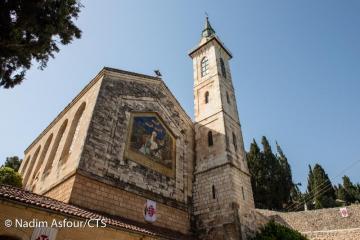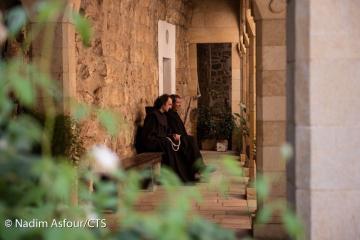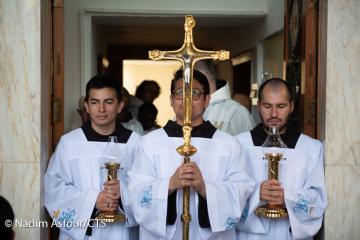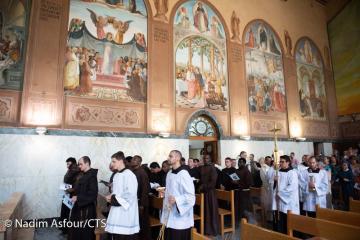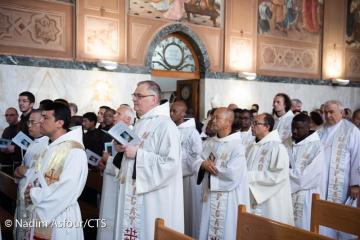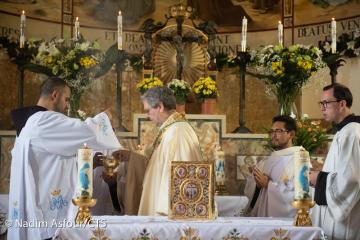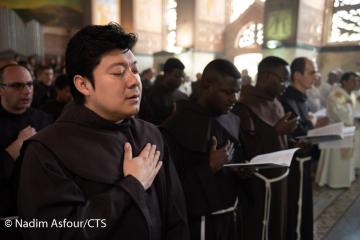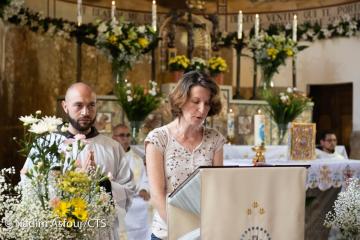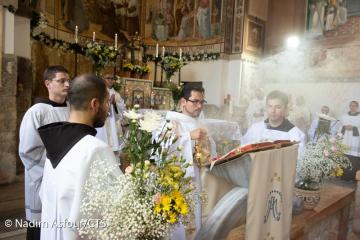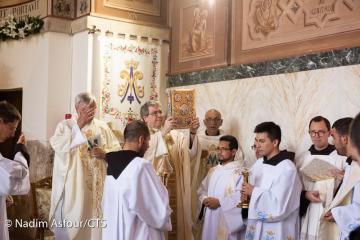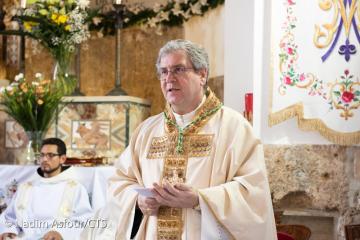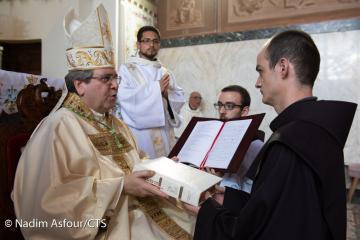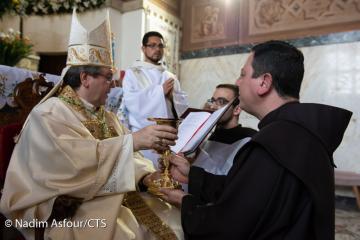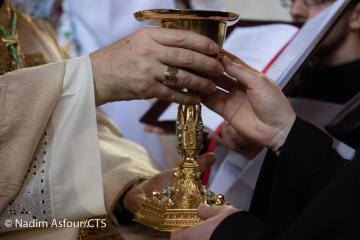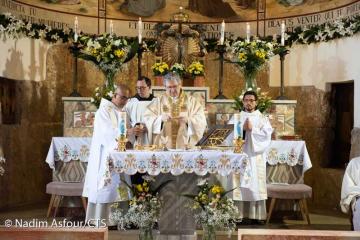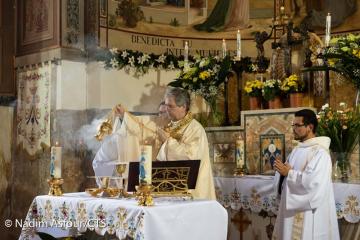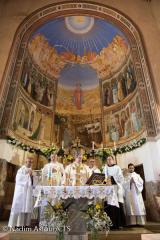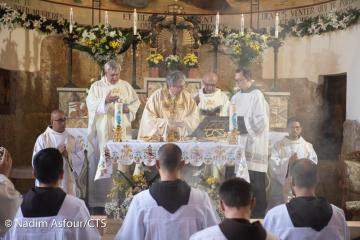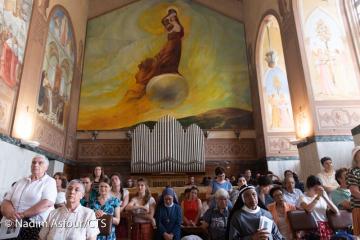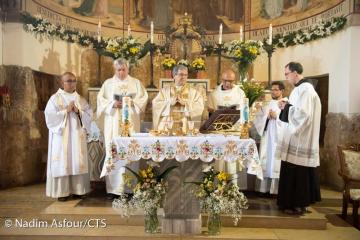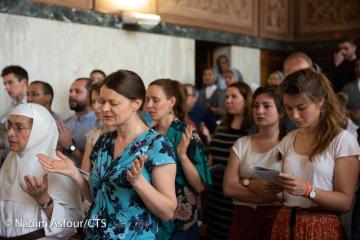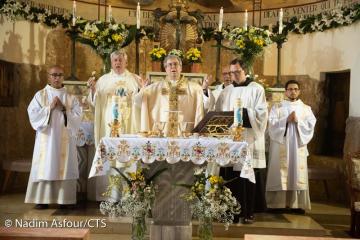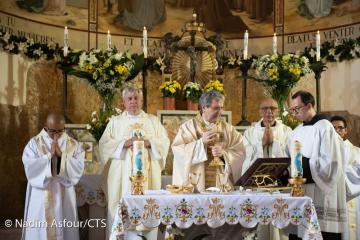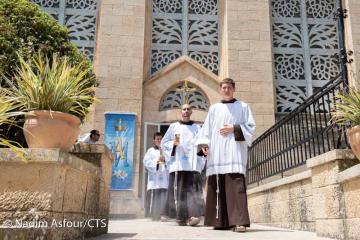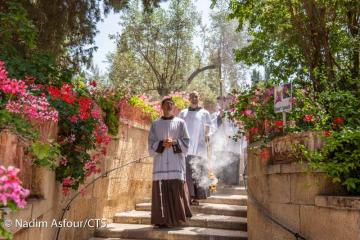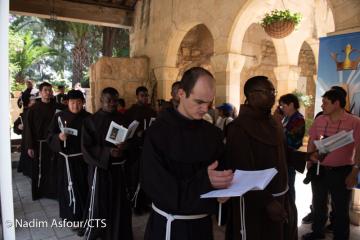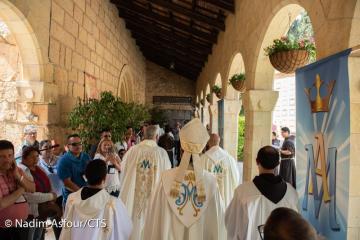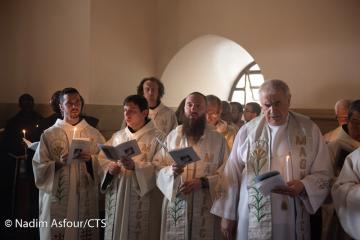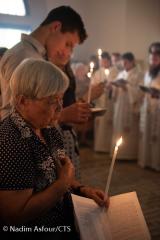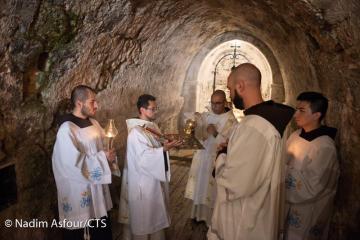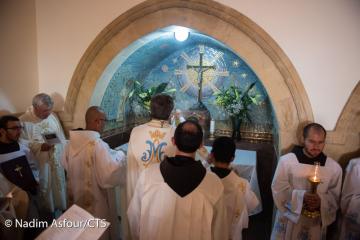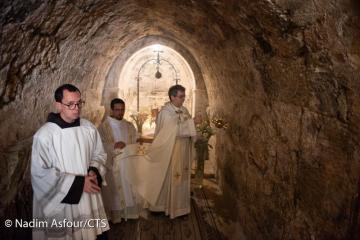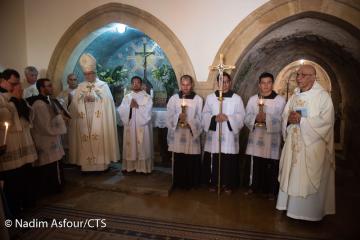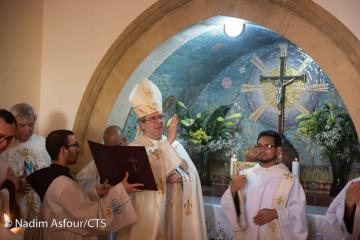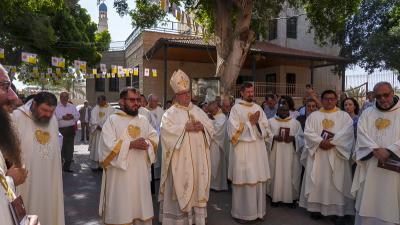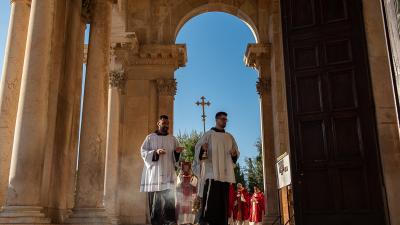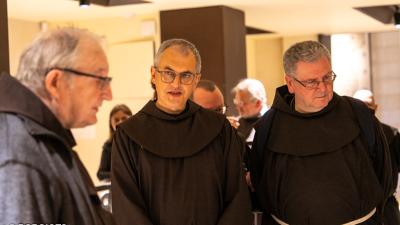
Friday 31st May, on the day the Marian month of May comes to an end, the Custody of the Holy Land celebrated the feast of the Visitation and ministries of lector and acolyte were conferred on twenty-two Franciscan friars minor.
The feast, celebrated today, recalls the visit that the Virgin Mary paid to her cousin Elizabeth after having received the news that she was to become the mother of Jesus through the Holy Spirit, as recalled in the Annunciation. Tradition has it that the place of the meeting was Ain-Karim, in Judea, the village of priests where the family of Zechariah, the father of John the Baptist and husband of Elizabeth, lived. The liturgical institution of this feast is due to the Franciscan Order, that celebrated it from as early as 1263. It was not until 1389 that Pope Urban VI extended it to the whole of the Latin Church.
This year the Eucharistic Celebration held at the Shrine of the Visitation and presided by the Custody of the Holy Land Fr. Francesco Patton, was made even more significant by the conferment of the ministries of acolyte and lector on twenty-two friars. The venue of the meeting between Mary and Elizabeth welcomed Franciscans from different places all over the world: Syria, Italy, Mexico, the Democratic Republic of the Congo, Congo–Brazzaville, Central African Republic, Peru, India, Argentina, El Salvador and South Africa.
"If today you are receiving the ministry of lector or of acolyte,” said the Custos in his comment on the passage from the feast-day Gospel, “remember first of all that what you are receiving is the honour of following Jesus and Mary on the path of service." Fr. Patton then emphasized the two attitudes that deeply bind the two ministries to the day’s celebration: the Christ that Mary was carrying is the Word of God but, at the same time, Flesh. He reminded the lectors to serve their brothers with the Word of God, which is always living and effective, whilst for the acolytes, he emphasized the need to humbly serve the great mystery of the presence of the Son of God even in the little bread and wine of the Eucharistic celebration. "May the Spirit of the Lord,” the Custos wished in conclusion, “also make each one of us small and humble servants and bearers of the joy that the presence – even invisible – of Jesus brings.”
Giovanni Malaspina


